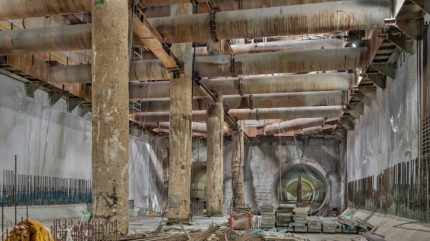
The NTA – Metropolitan Mass Transit System has initiated the prequalification process for the design and construction of the first phase of the Tel Aviv Metropolitan Metro Programme in Israel.
The metro tenders are valued at around NIS65bn ($20bn), as reported by Globes.

Discover B2B Marketing That Performs
Combine business intelligence and editorial excellence to reach engaged professionals across 36 leading media platforms.
NTA is responsible for developing the Tel Aviv Metropolitan Mass Transit System, which includes a metro network made up of three mainly underground lines, stretching approximately 150km across 109 stations.
The Tender Committee has issued an invitation to identify potential participants who may later be invited to submit bids for the design and construction of the project’s first stage.
This stage covers 76km of tunnels and 59 stations and is split into 11 ‘Infra #1 Work Packages’.
Each package involves designing and building tunnel sections using tunnel boring machines, along with constructing underground stations through cut-and-cover methods.

US Tariffs are shifting - will you react or anticipate?
Don’t let policy changes catch you off guard. Stay proactive with real-time data and expert analysis.
By GlobalDataFour out of the 11 packages will also cover either station or crossover construction using traditional sequential tunnelling techniques.
The contract award process for these work packages will take place in several phases over multiple years.
After evaluating the prequalification submissions, the committee will separately announce which participants have met its requirements and are not otherwise disqualified.
These participants will be considered eligible and invited to participate in future tenders.
The Metro Network Programme is planned to function as a frequent urban rail system.
The service will use trains approximately 115m long on the M1 line and about 95m long on the M2 and M3 lines, with a width of around 3.2m.
The current plan expects trains to run at two-minute intervals on the M1 and M2 lines, and at three-minute intervals on the M3 line.
The Metro Lines design is intended to reduce street-to-street journey time.
Estimated passenger capacity for the metro lines is approximately 27,000 passengers per hour per direction on Line M1, about 21,000 passengers per hour per direction on Line M2, and roughly 11,000 passengers per hour per direction on Line M3.
The design for the project is expected to follow the 2050 transportation model.





